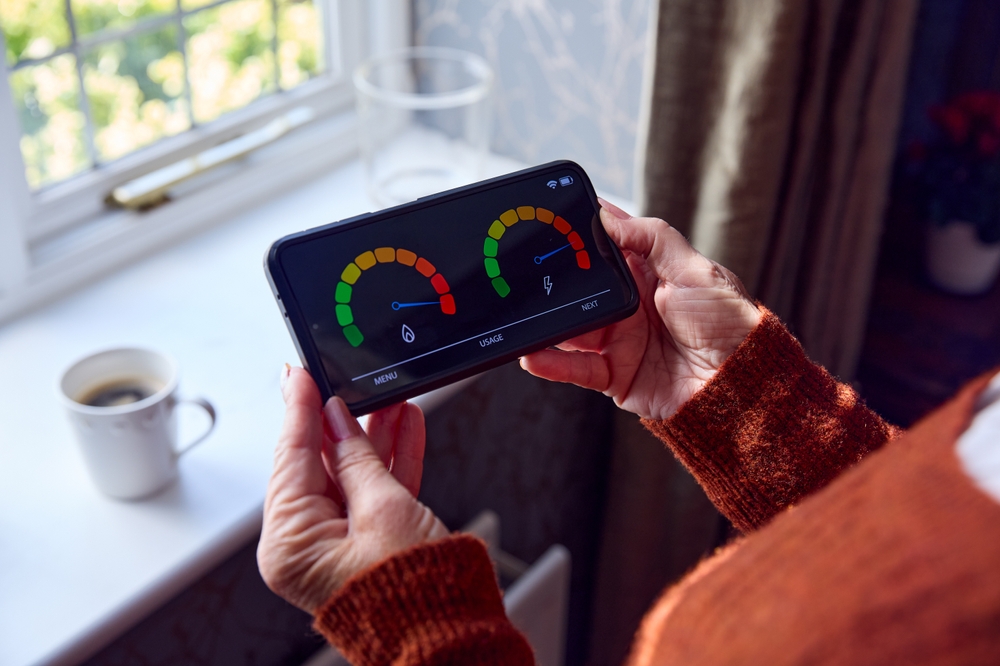On Tuesday 1st July 2025, energy bills dropped for 21 million households across England, Scotland and Wales thanks to a lower Ofgem price cap.
But with winter on the horizon, the question remains: will these energy prices stay low long enough to make a real difference to household bills later in the year? We’ve rounded up all you need to know below.
How Much Are Energy Bills Dropping By?
Under the new Ofgem price cap, energy bills for a household using a typical amount of gas and electricity have dropped by £11 per month or £129 per year. This equates to a 7% cut, taking a typical household’s energy bills (on a price-capped, dual-fuel tariff paying by direct debit) to a total of £1,720 per year.
Here is a full breakdown of the variable energy prices for a customer who pays by direct debit:
- Gas – capped at an average of 6.33p per kilowatt hour (kWh), down from 6.99p.
- Electricity – capped at 25.73p per kWh, down from 27.03p.
- Gas Standing Charges – have fallen to 29.82p a day, down from 32.67p.
- Electricity Standing Charges – vary by region but, on average, have fallen to 51.37p a day down from 53.8p.
While this is a welcome change, there is still a concern that bills will hit harder later in the year, particularly during winter when the days get colder and darker.
How Does the Ofgem Price Cap Work?
Every 3 months, the Ofgem price cap sets a maximum amount that energy suppliers can charge for each unit of energy. This applies to households on a variable tariff across England, Scotland and Wales.
Those on pre-payment meters pay slightly less, with a typical annual bill of £1,672. Whereas, people paying bills by cash or cheque pay more, with a typical bill of £1,855.
The current energy price cap will last until Tuesday 30th September 2025, and is therefore set to change again on Wednesday 1st October 2025. While future energy prices are difficult to predict, analysts at Cornwall Insight have forecast a 1% drop in October.
Find out more about Ofgem’s current energy price cap here.
What is Ofgem’s Advice?
Ofgem is urging people to shop around for a fixed deal, which could provide more certainty over energy prices. However, it’s important to note that a fixed deal only sets the unit rate. Actual household bills depend on how much energy is used.
How Can I Save on Energy Bills During the Summer?
During the summer, you’ll be saving on energy bills by not having the heating on, taking cold showers, etc. But this doesn’t mean you should forget about budgeting.
At this time of year, households usually focus on the cost of cooking, and how to make it more budget-friendly. Especially since the rising cost of living has shot food prices through the roof.
Here are a few tips we would recommend during the summer:
- Try making ‘no-cook’ meals that don’t require using any kitchen appliances, e.g. salads, sandwiches or wraps.
- Bulk cook your meals and freeze them for later.
- Cook on the hob where you can to avoid using the oven.
Check out more of our summer budgeting tips here.
How Do Energy Prices Affect Other Bills?
As energy prices rise or fall, they often impact more than just your gas and electricity bill. Many people fall into priority debt as household bills stack up, especially over the winter months.
If you’re worried about managing multiple outgoings, it’s important to seek debt advice early. You can also read about how to keep your home cool without heating up your bills here.
Struggling With Energy Bills?
If you’re struggling to make ends meet, whether that’s regarding your energy bills or another type of priority debt, please contact Angel Advance to receive free*, confidential debt advice today.
Our team of debt advisers is friendly and experienced, ready to talk you through our wide range of debt solutions. But you don’t have to talk to us on the phone if you don’t want to – our online debt advice tool is accessible any time, day or night. Free and easy-to-use, our handy tool tells you which solutions are available to you on-screen, instantly – all without the need for a phone call.
If you’re looking for ways to deal with debt, we offer free confidential debt advice and a wide range of debt solutions that you can apply for online, including Debt Management Plans (DMPs), Individual Voluntary Arrangements (IVAs), Debt Relief Orders (DROs), Bankruptcy and Partial Settlements, as well as Debt Solutions for Scottish Residents.
If all you need is debt advice, this won’t affect your credit score.
*Our advice is free, but if you sign up for a debt solution, a fee will apply for some solutions.


